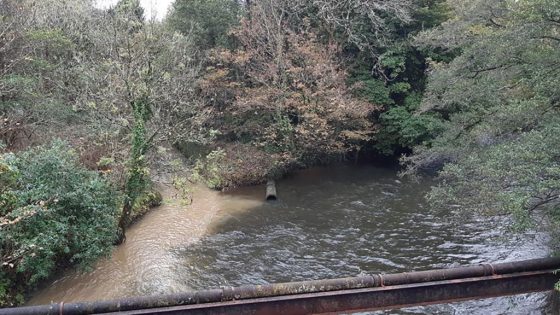A housebuilder has been ordered to pay more than £10,000 in fines and costs after polluting a stream near Tondu, Bridgend, in south Wales.
According to a statement from Natural Resources Wales (NRW), Llanmoor Development Co admitted responsibility for several illegal water discharges from its Parc Tondu site between August 2021 and March 2022.
The company and its subcontractor, which NRW did not name, failed to prevent surface water laden with silt and mud from entering a tributary of the Nant Kenfig, which flows into the River Ogmore.
NRW said that after a local angling group reported issues, water samples taken downstream of the site by its officers had very high levels of suspended solids.
Silt pollution can significantly impact the water quality and ecology of rivers and can kill insects, plants and fish. It can also reduce spawning and hatching of fish eggs, the environmental body added.
Llanmoor Development Co Ltd, of Talbot Green, Rhondda Cynon Taf, pleaded guilty to breaching Regulation 12(1)(b) and Regulations 38(1) and 39 of the Environmental Permitting (England & Wales) Regulations 2016 at a hearing at Cardiff Magistrates’ Court last year.
It was sentenced earlier this month and fined £4,000, ordered to pay NRW’s costs of £6,280.79 and a victim surcharge of £190.
NRW operations manager Fiona Hourahine said: “Environmental regulations are in place to help protect people and wildlife.
“Llanmoor Development Co Ltd had a duty under its planning conditions to ensure there were measures in place to prevent contaminated water run-off from impacting nearby streams and rivers.
“The company was aware of the risks and consequences of not installing pollution mitigation initially, and not maintaining the measures introduced properly.
“We will use all the resources and levers at our disposal to prevent harmful pollution, carrying out more inspections and prosecuting those who commit the most severe or deliberate damage.”
She added: “We’d like to thank the Ogmore Angling Association for reporting many of these pollution incidents to us. This allowed us to respond quickly to find the source and collect the evidence we needed for the prosecution.”

